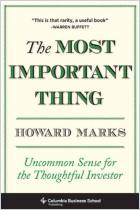Join getAbstract to access the summary!

Join getAbstract to access the summary!
John C. Bogle
Common Sense on Mutual Funds
New Imperatives for the Intelligent Investor
Wiley, 1999
What's inside?
You can't beat the market with mutual funds – but you can still make money by investing in index funds.
Recommendation
getAbstract.com believes that this classic work by one of the twentieth century’s great investment authorities belongs on every investor’s bookshelf. Published in 1999, at the height of a notorious stock market bubble, it was a rare, sage, clear-eyed appraisal of investment reality. It remains relevant. Author John C. Bogle argues so strenuously for a low-cost, passive investment approach based on index funds that you could almost accuse him of marketing hype. After all, he did start Vanguard, an investment company best known for its low-cost index funds. However, the evidence he presents to back up everything he says exonerates him fully. Today’s investors are not quite as eager as investors were in the 1990s to believe in the impossible dream of infinite wealth from the stock market. Still, many people waste their time and money trying to beat a market that the best financial research unequivocally shows is, for most people and over the long run, unbeatable. Bogle explains why, while recommending much-needed reform of the mutual fund industry.
Summary
About the Author
John C. Bogle is founder and senior chairman of the Vanguard Group, Inc., the world’s largest no-load mutual fund group.






















Comment on this summary